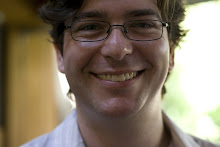On Returning
Again, this is really more of a series of thoughts than a cohesive essay. It doesn't attempt to paint the whole picture. As a result it can appear somewhat depressing, especially to loved ones.
--------------
I have previously said that travelling alone is one of the hardest things one can do. But of that experience the return home is probably the most difficult. The unfamiliar world the traveller moves in is one full of surprises, excitement, and challenge. One is forced to become a 'new' person, of sorts, in order to deal with this. Becoming good at it is enriching for the soul and teaches you a great deal about your self. In a sense these challenges and surprises are mirrors held in front of your face, and the image written upon them one only you can confront. For that travel period it becomes the way of life - meeting challenges and confronting fears.
The return to 'normality' thus becomes the greatest challenge, for suddenly all is predictable, safe, familiar, and known: all is known, or appears to be, and that knowledge is terrifying. "Is this all there is", we ask? We see our relationships and the familiar patterns of life and all we see is predictability. In our home culture we cringe at those aspects we saw reflected while on the road and that we so adamantly rejected. For a brief time all we see are these apparent negatives. Our disappointment at the shattered illusion of home we call 'culture shock', and it is remarkably similar to that we felt upon leaving home. Yet, somehow this shock cuts deeper.
How is it that the beautiful routines of home can seem dull and unlovely? We strive for them so hard in normal life, but six weeks with a backpack in India and we feel like home is flawed; the cool morning breeze isn't quite as refreshing as the katabatic wind off the Himalayas, the clean, empty, and well organised streets appear lifeless to eyes and ears now used to chaos, shit, and crowds, and the tones of home somehow sound less cheerful, less musical. It's illogical, but we still feel it.
I suspect in my own case part of this has to do with a sense of purpose. In India I was the researcher, the intrepid social explorer (oh how mighty our visions of ourselves are). There was no ambiguity in my mission. But at home ambiguity returns - am I a researcher, a writer, a husband, a friend, a citizen...? The multitude of roles competing for our attention results in feeling like we are being pulled in every direction at once, and we feel torn inside.
However, this makes me think that what we are really experiencing is a reflection of the more general phenomenon of change. To leave home and travel, whether for work or pleasure, requires a shift in being, to some degree. At home one is one's normal self, absorbed in the vicissitudes and complexities of everyday life. Yet, when we travel this state of being is not appropriate most of the time and a new state must be inhabited, like a new set of clothes. Thus we become the traveller version of ourselves. We are the same, and yet we feel ourselves changed in the experience, as well as by it. The traveller us might even appear to be a radically different person to that we thought we knew at home; perhaps more patient, more assertive, less emotionally unstable, or with less fear.
The return home thus requires the shedding of the state of being, and like any change it can be traumatic, especially as those 'new' aspects we have come to love may have to be discarded as inappropriate in our home context. Our linear conception of historical progression (at least in the Western cultural milieu) requires that we abandon that which we have left behind as useless. Yet when we return we say we 'pick up where we left off', as if somehow time stood still while we were away. We put on again our old clothes and the fit simply feels wrong. Our old home state of being hasn't changed, and as a result we feel dirty in it. "Surely I'm not unchanged", we plead, "surely these experiences have made me a better person?" Yet somehow, for a while at least, we fail to see it.
Thankfully, of course, this is the illusion that ontic change creates. There can be no experience without change. Indeed, some have said that the only constant is change itself. Returning home and donning our old clothes we see the familiar wrinkles and stains, feel the tears and patches, and it takes a while for our changed, new self to work them flat and be comfortable again. And thus we realise finally that we are indeed changed: the same but different.
More: Full post













